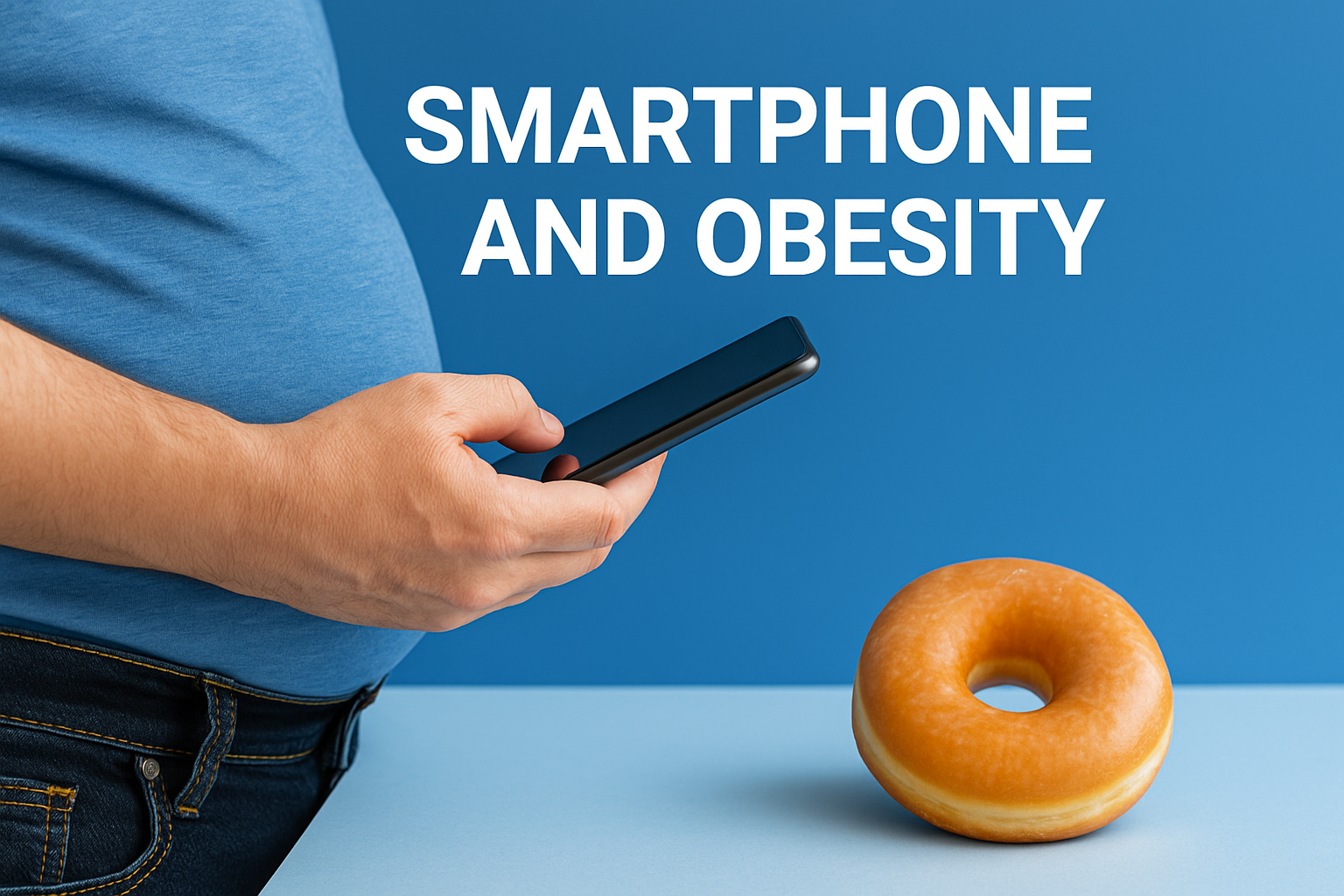In today’s hyper-connected world, smartphones are practically an extension of our hands. From social media scrolling to food delivery apps, our mobile devices make life more convenient than ever. But beneath the surface, a growing body of research points to a worrying connection between smartphone use and rising obesity rates worldwide.
Let’s dive into how smartphones may be silently contributing to the obesity epidemic—and what you can do about it.
How Smartphones Contribute to Obesity
1. Sedentary Behavior and Screen Time
One of the most obvious pathways linking smartphones to obesity is the promotion of sedentary lifestyles. Studies show that excessive screen time—particularly more than 2-3 hours a day—correlates with reduced physical activity.
Instead of playing outdoors, exercising, or even walking, people are increasingly glued to their screens. Over time, this lack of movement lowers calorie expenditure, making it easier to gain weight.
📊 A 2021 study in the journal BMC Public Health found that adolescents who spent more time on smartphones had a 43% higher risk of being overweight or obese.
2. Mindless Eating and Distraction
Smartphones often turn meals into mindless activities. Whether it’s binge-watching shows during dinner or endlessly scrolling while snacking, distracted eating leads to overconsumption.
When you’re not focused on your food:
- You miss fullness cues.
- You eat larger portions.
- You crave unhealthy snacks promoted online.
The result? Higher calorie intake without even realizing it.
3. Sleep Disruption
Exposure to blue light from screens before bedtime interferes with the body’s natural sleep cycle (circadian rhythm). Poor sleep quality is strongly linked to weight gain because it:
- Disrupts hormones like leptin and ghrelin that regulate appetite.
- Increases cravings for high-fat, high-sugar foods.
- Reduces energy, making physical activity less appealing.
Lack of sleep combined with poor dietary choices creates a vicious cycle fueling obesity.
4. Increased Access to Fast Food and Delivery Apps
Thanks to smartphones, ordering calorie-dense foods is just a tap away. Food delivery apps like Uber Eats, DoorDash, and Zomato have made high-calorie meals more accessible than ever, often prioritizing convenience over nutrition.
Moreover, constant exposure to ads for fast food on social media increases temptations, subtly influencing eating behavior without us even noticing.
The Psychological Dimension: Dopamine and Reward Systems
Smartphones exploit the brain’s dopamine system, the same system that regulates pleasure and reward. Every notification, like, or win in a mobile game triggers a small dopamine rush, making screen time addictive.
Similarly, highly processed foods (like burgers, pizzas, and sweets) also spike dopamine. When combined, smartphone addiction and junk food cravings reinforce each other, making it harder to break free from unhealthy cycles.
Who Is Most at Risk?
While everyone is vulnerable, certain groups are particularly at risk:
- Children and adolescents: Developing habits during formative years.
- Young adults: High social media usage combined with late-night snacking.
- Office workers: Sedentary jobs plus smartphone downtime.
Solutions: How to Break the Cycle
- Set Screen Time Limits: Use built-in features like Digital Wellbeing (Android) or Screen Time (iPhone) to monitor and reduce usage.
- Create No-Phone Zones: Especially during meals and before bedtime.
- Prioritize Movement: Take mini-breaks from your phone to stretch or walk.
- Mindful Eating: Eat without screens to focus on hunger and fullness cues.
- Improve Sleep Hygiene: Turn off screens at least one hour before bed.
- Educate and Raise Awareness: Teach kids and adults alike about the hidden risks of excessive smartphone use.
Final Thoughts: Finding a Healthier Balance
Smartphones are powerful tools—but they should serve us, not harm us. Awareness is the first step toward a healthier relationship with technology and food. By setting boundaries, fostering mindfulness, and prioritizing real-world activities, we can enjoy the benefits of smartphones without letting them weigh us down—literally.
In the battle against obesity, managing smartphone habits might just be one of the smartest moves we make.



